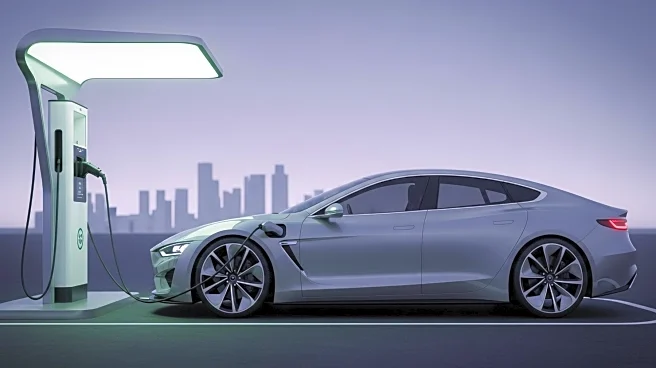What's Happening?
Mazda Motor Corporation has updated its roadmap to achieve carbon neutrality at its global manufacturing facilities by 2035. The revised plan includes an interim CO2 emissions reduction target for fiscal year 2030, adjusted from 69% to 46% compared to fiscal year 2013. Mazda aims to transition its power plants from coal to a gas cogeneration system fueled by LNG, with plans to phase in hydrogen as a carbon-neutral fuel. The company is collaborating with Kawasaki Heavy Industries to optimize energy management and efficiency, while engaging local energy providers for community support.
Why It's Important?
Mazda's updated roadmap reflects a strategic shift towards more flexible and sustainable energy solutions. By revising its emissions targets and transitioning to cleaner fuel sources, Mazda is aligning with global efforts to combat climate change and reduce carbon footprints. This initiative is crucial for the U.S. automotive industry, as it sets a precedent for other manufacturers to adopt similar sustainability measures. Mazda's commitment to carbon neutrality could influence regulatory policies and consumer expectations, driving the industry towards greener practices.
What's Next?
Mazda plans to decommission its coal-fired power plants by 2030, advancing its roadmap towards carbon neutrality. The company will continue collaborating with partners to refine its energy systems and explore new technologies. As Mazda progresses towards its 2035 goal, further developments in renewable energy adoption and CN fuel usage are expected. The impact on the U.S. market may include increased availability of environmentally friendly vehicles and heightened consumer awareness of sustainability issues.
Beyond the Headlines
Mazda's roadmap update highlights the broader implications of transitioning to sustainable energy sources. The company's focus on collaboration and community engagement underscores the importance of collective efforts in achieving carbon neutrality. This approach may inspire other industries to adopt similar strategies, fostering a culture of sustainability and innovation. Additionally, Mazda's emphasis on energy efficiency and optimal management could lead to advancements in technology and infrastructure, benefiting the automotive sector and beyond.










